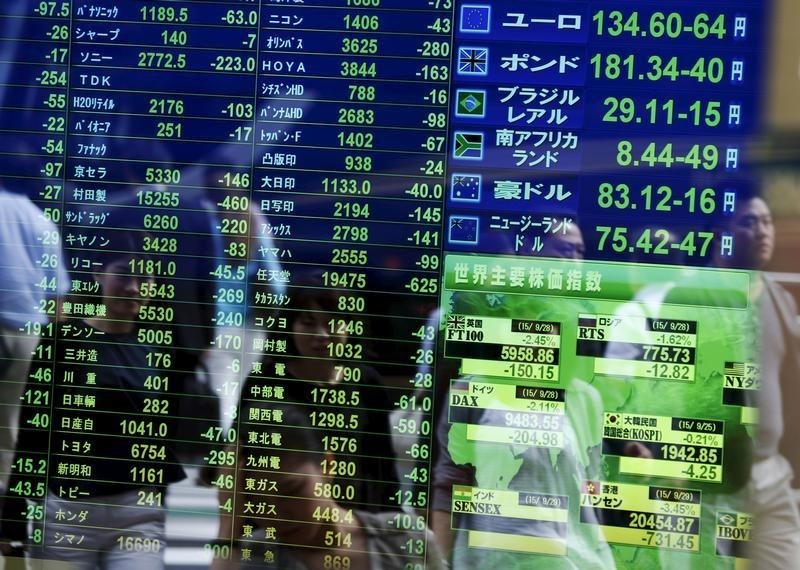By Gaurav Dogra
(Reuters) - Foreigners were net purchasers of emerging Asia ex-China bonds for a second successive month in August, although the buying was measured on concerns over soaring inflation and expectations of a more aggressive stance from the U.S. Federal Reserve.
Overseas investors last month purchased a net total of $1.05 billion worth of bonds in Indonesia, Thailand, Malaysia, South Korea, and India, according to data from regulatory and bond market associations.
Foreigners bought $618 million as regional bonds in July, after disposing of a total $15.45 billion between March and June.
"The sustainability of the inflows will be challenged by growing external headwinds," Khoon Goh, head of Asia research at ANZ, said in a report last week.
"The U.S. Federal Reserve is set to continue tightening monetary policy aggressively, sending the USD and U.S. yields higher, which tend to be negative for flows into Asia."
The U.S. 10-year Treasury yield on Monday hit its highest in more than a decade and the dollar strengthened due to soaring expectations that the Fed would deliver a hefty rate hike this week to tackle inflation.
Malaysian bonds lured $1.25 billion as foreign inflows last month, the highest since December, while Indonesian bonds obtained about $600 million.
Indian bonds also received $483 million on reports saying J.P.Morgan was in talks with investors over a possible inclusion in its emerging markets index.
Meanwhile, South Korean bonds faced outflows of $1.38 billion, the biggest monthly withdrawal by foreigners since December 2019, on worries over slowing semiconductor exports.

A Barclays (LON:BARC) report said foreign holdings as a percentage of total government bonds outstanding declined across Asia in August, with the exception of Malaysia and India.
The brokerage said structural long-term allocations should partially offset still-defensive non-resident demand for Asian bonds, "but risks are for larger outflows if global rates rise further."
